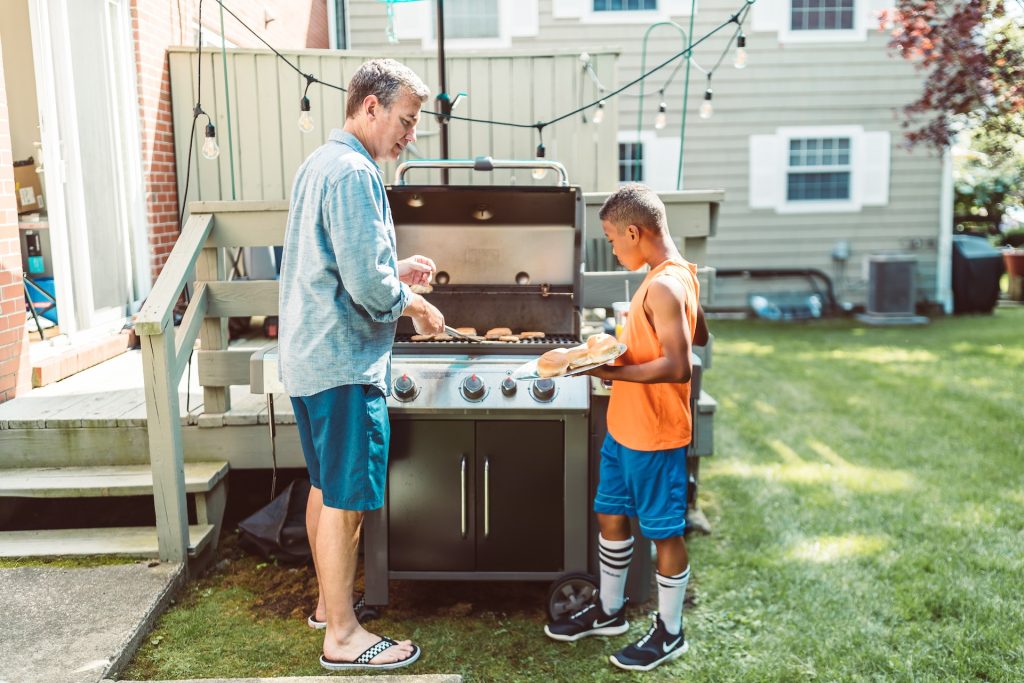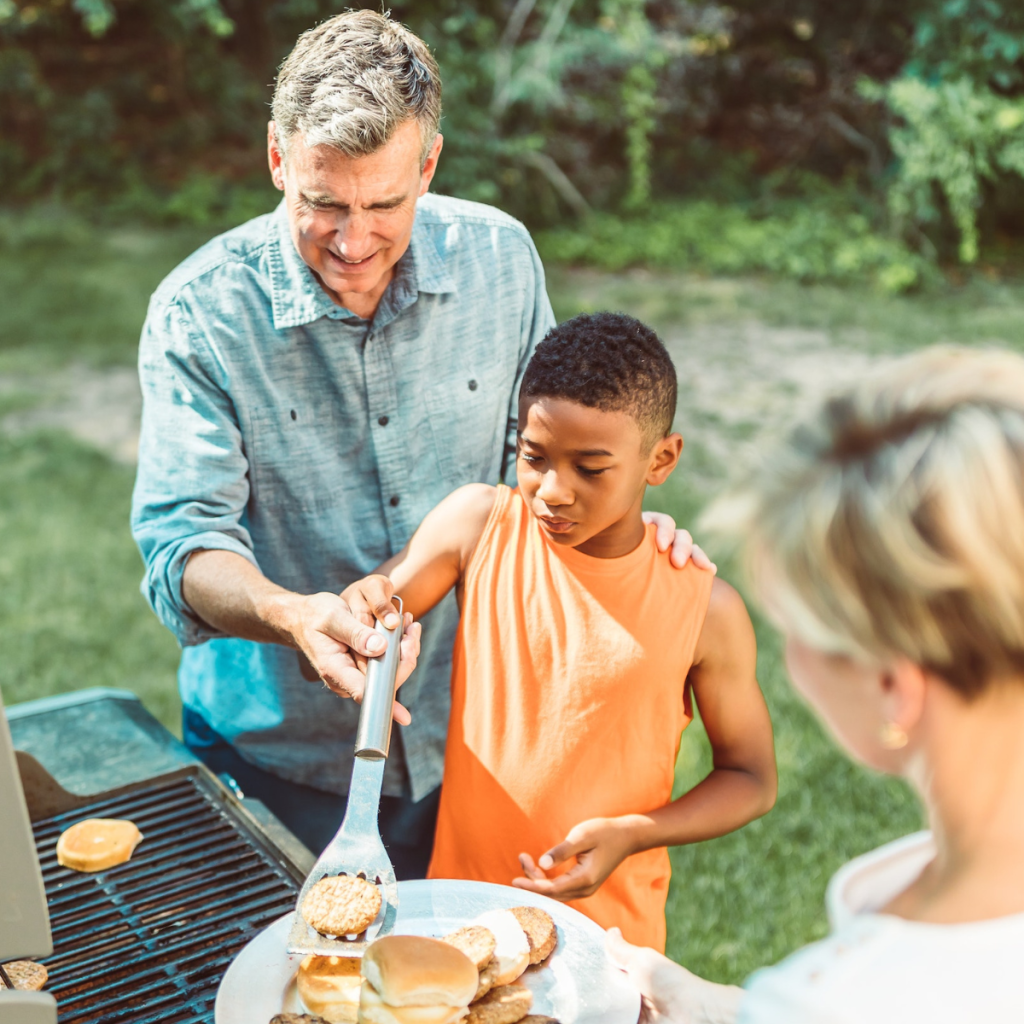Discover effective tips and strategies for teaching cooking to 11-12 year olds.
Teaching Cooking to 11-12 Year Olds: Tips and Strategies
Teaching cooking skills to 11-12 year olds can be a fun and rewarding experience for both the young chefs and their instructors. Not only does it encourage them to develop essential life skills, but it also allows them to explore their creativity and unleash their inner master chefs. In this article, we will explore some valuable tips and strategies to make the cooking lessons engaging and effective for this age group.
Understanding the Importance of Teaching Cooking Skills

Before diving into the practical aspects of teaching cooking, let’s take a moment to understand why it is essential for preteens to acquire these skills at an early age.
Cooking is not just about preparing meals; it plays a significant role in the overall development of 11-12 year olds. When children engage in cooking, they are not only learning how to create delicious dishes but also improving their motor skills. The act of chopping vegetables, stirring ingredients, and measuring quantities requires precise hand movements, which in turn enhances their hand-eye coordination.
Furthermore, cooking provides an excellent opportunity for preteens to develop their cognitive abilities. They need to follow recipes, understand measurements, and make decisions about ingredients and cooking techniques. These mental processes stimulate their critical thinking skills and promote problem-solving abilities.
Teaching cooking to preteens also instills a sense of responsibility, independence, and confidence in them. As they learn to prepare their own meals, they become more self-reliant and capable of taking care of themselves. This newfound independence boosts their self-esteem and empowers them to tackle new challenges in the kitchen and beyond.
The Role of Cooking in Child Development
Teaching cooking to 11-12 year olds goes beyond just preparing meals. It plays a significant role in their overall development. Cooking helps them improve their motor skills, enhance their hand-eye coordination, and develop their cognitive abilities. Moreover, it instills a sense of responsibility, independence, and confidence in them as they learn to prepare their own meals.
But the benefits of teaching cooking skills to preteens extend beyond their physical and mental development. By learning how to cook, they develop a healthier relationship with food. They become more aware of the ingredients they use and the nutritional value of different foods. This knowledge empowers them to make better food choices, leading to a more balanced and nutritious diet.
Additionally, cooking together as a family fosters bonding and creates lasting memories. When parents and preteens collaborate in the kitchen, they not only share the joy of preparing delicious meals but also strengthen their relationships. It becomes a time for conversation, laughter, and learning from one another. These shared experiences create a strong foundation for family connections and create cherished memories that will be treasured for years to come.
Benefits of Cooking Skills for Preteens
Aside from the developmental aspects, there are other benefits associated with teaching cooking skills to preteens. By learning how to cook, they develop a healthier relationship with food, understand the importance of nutrition, and make better food choices. Additionally, cooking together fosters family bonding and creates lasting memories.
As preteens acquire cooking skills, they become more conscious of the food they consume. They learn to appreciate the value of fresh ingredients, experiment with different flavors, and understand the impact of cooking methods on taste and texture. This knowledge empowers them to make informed decisions about their dietary choices and promotes a lifelong habit of mindful eating.
Moreover, cooking provides preteens with a creative outlet. They can experiment with recipes, try new ingredients, and develop their own signature dishes. This creativity not only enhances their culinary skills but also nurtures their imagination and self-expression.
Furthermore, cooking together as a family creates a sense of togetherness and strengthens the bonds between parents and preteens. It becomes a shared activity where everyone contributes, learns, and enjoys the fruits of their labor. These moments of collaboration and connection become cherished memories that shape the family dynamics and create a strong foundation for future relationships.
Setting Up a Safe and Engaging Kitchen Environment

Creating a safe and engaging kitchen environment is crucial to ensure a positive and enjoyable cooking experience for 11-12 year olds. It is important to provide them with the necessary knowledge and tools to navigate the kitchen confidently and safely.
When setting up a kitchen for young chefs, there are several essential safety measures that should be implemented. Prioritizing safety is key, and this can be achieved by teaching basic kitchen safety rules and precautions. It is crucial to emphasize the importance of using oven mitts when handling hot pots and pans, as well as the significance of handling sharp knives under adult supervision. Additionally, teaching proper food handling and hygiene practices, such as washing hands before and after handling food, is essential to prevent the spread of bacteria and ensure a safe cooking environment. Encouraging the use of safe cooking techniques and tools, such as non-slip cutting boards and child-friendly utensils, can further enhance the safety of the kitchen.
Creating a kid-friendly kitchen setup goes beyond just safety measures. It is equally important to make the kitchen a fun and inviting space for young chefs. By organizing the kitchen in a way that is accessible to them, you can empower them to take charge of their cooking adventures. Keeping ingredients and equipment at their eye level and arranging them in an appealing and orderly manner can make a significant difference. Imagine a kitchen where colorful jars filled with various spices line the shelves, neatly labeled with their names. Picture a display of fresh fruits and vegetables in vibrant baskets, enticing young chefs to experiment with different flavors and textures. By incorporating vibrant colors, playful decorations, and age-appropriate utensils, you can create an engaging atmosphere that sparks creativity and enthusiasm.
Furthermore, involving young chefs in the decision-making process when setting up the kitchen can make them feel a sense of ownership and pride. Ask them for their input on how they would like the kitchen to be organized and what colors or themes they find appealing. By including them in these discussions, you not only create a space that reflects their preferences but also foster a sense of responsibility and independence.
Remember, a safe and engaging kitchen environment is not only about the physical setup but also about the atmosphere you create. Encourage open communication, teamwork, and a positive attitude towards learning and experimenting. By instilling a love for cooking and providing a safe space for young chefs to explore their culinary skills, you are not only nurturing their creativity but also equipping them with valuable life skills that will stay with them for years to come.
Choosing Age-Appropriate Recipes
Selecting recipes that are suitable for 11-12 year olds is crucial to keep them motivated and interested in cooking. Introducing children to the world of cooking at a young age not only helps them develop essential life skills but also fosters a sense of independence and creativity in the kitchen. However, it is important to carefully evaluate the recipes chosen for this age group to ensure they are both challenging and enjoyable.
Evaluating Recipe Difficulty Levels
When selecting recipes for 11-12 year olds, it is essential to consider their skill level and capabilities in the kitchen. Starting with simple recipes allows them to build a solid foundation and gain confidence in their cooking abilities. As they become more proficient, gradually introduce more complex recipes that will challenge and expand their culinary skills.
One way to assess the difficulty level of a recipe is by considering their abilities to chop, stir, and follow instructions. Recipes that require basic chopping skills, such as dicing vegetables or slicing fruits, can help them improve their knife skills and hand-eye coordination. Similarly, recipes that involve stirring and mixing ingredients together can enhance their understanding of different cooking techniques.
Furthermore, it is important to encourage children to read and follow instructions carefully. Recipes that have clear and concise instructions will not only help them develop their reading comprehension skills but also teach them the importance of following directions accurately in the kitchen.
Incorporating Nutritional Education in Recipe Selection
Simultaneously educating and engaging preteens about nutrition is crucial when selecting recipes for this age group. By incorporating ingredients that promote healthy eating habits, such as fresh fruits, vegetables, whole grains, and lean proteins, you can instill in them the importance of making nutritious food choices.
When choosing recipes, consider incorporating a variety of fruits and vegetables to expose children to different flavors and textures. This can help expand their palate and encourage them to try new foods. Discussing the nutritional benefits of each ingredient can also be a great way to initiate conversations about the importance of a balanced diet.
Additionally, involving children in the meal planning process can be an effective way to teach them about nutrition. Encourage them to research and suggest recipes that incorporate a variety of food groups, ensuring a well-rounded and balanced meal. This not only empowers them to make informed food choices but also encourages creativity and ownership in the kitchen.
By carefully selecting age-appropriate recipes and incorporating nutritional education, you can create a positive and enriching cooking experience for 11-12 year olds. Remember, cooking is not just about preparing food; it is an opportunity to foster a love for food, develop essential life skills, and promote a healthy lifestyle.
Effective Teaching Techniques for Cooking Lessons
Engaging preteens in cooking lessons requires effective teaching techniques that balance instruction and hands-on experience.
Balancing Instruction and Hands-On Experience
Vary the teaching approach by providing a combination of demonstrations, step-by-step instructions, and hands-on practice. Begin by explaining the recipe and demonstrating the techniques involved, allowing them to observe. Then, guide them through the process, while encouraging them to actively participate and ask questions along the way.
Encouraging Creativity and Experimentation in the Kitchen
Spark their creativity by encouraging them to add their personal touch to recipes. Allow them to experiment with flavors, spices, and alternative ingredients to make the dishes their own. By fostering their creativity, you not only enhance their cooking skills but also help them develop their own unique culinary style.
Dealing with Common Challenges in Teaching Cooking
Teaching cooking to 11-12 year olds may come with its own set of challenges, but with the right strategies, these obstacles can be overcome.
Addressing Food Allergies and Dietary Restrictions
Be mindful of any food allergies or dietary restrictions among the young chefs. Ask their parents or guardians for any dietary information beforehand. When choosing recipes, offer suitable alternatives or modifications to accommodate their specific needs. This ensures that every child can participate and enjoy the cooking experience.
Overcoming Resistance to New Foods and Techniques
One common challenge in teaching cooking to preteens is their reluctance to try new foods or unfamiliar cooking techniques. Encourage them to step out of their comfort zones by making the cooking process interactive and exciting. Explain the benefits of trying new foods, and lead by example by exhibiting enthusiasm and positivity in the kitchen.
Teaching cooking to 11-12 year olds is an opportunity to foster a love for food, creativity, and independence. By understanding the importance of teaching cooking skills, setting up a safe and engaging kitchen environment, choosing age-appropriate recipes, using effective teaching techniques, and overcoming common challenges, instructors can create an enjoyable and valuable cooking experience that will benefit preteens for years to come. Happy cooking adventures!



